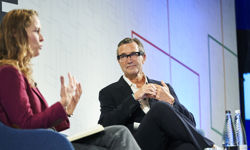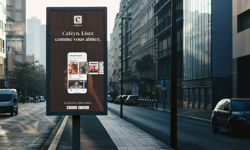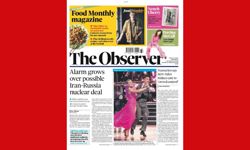"Sexting" has been voted the most annoying new technology word added to dictionaries over the last year – and so wins a new award for the year's most unspeakable example of tech-talk or geek-speak.
Sexting – which means "the sending of sexually explicit photographs or messages by mobile phone" – wins the first annual Unspeakable Award, given by Incisive Media's Computeractive magazine to the "new, technology-related word most likely to make you wince, grimace or want to bang your head on the keyboard".
It does so after topping an online poll of 2054 people conducted by YouGov for Computeractive to find the single "most annoying or horrible" new technology-related word added to dictionaries over the last year or so.
The next most annoying words, felt those polled, were respectively:
• Intexticated ("unable to concentrate while driving due to being distracted by texting")
• Defriend ("To remove someone from one’s list of friends on social networking site.")
• Twittersphere ("the collective noun for all Tweets on Twitter")
"There’s no arguing that 'intexticated', 'defriend' and 'Twittersphere' are all unspeakable words", says Paul Allen, editor of Computeractive, which delivers simple, clear computer advice in plain English.
"But 'sexting' is a worthy winner – truly a word to make you want to bang your head on the keyboard… or vice-versa. When you first hear it, you don’t know whether to wince, howl or just weep for the English language. Besides, any word voted more horrible than "intexticated" deserves an award."
Every year the world of technology yields a fresh crop of hideous and often baffling new words, says Allen. "They're all geek to me… and many others", says Allen. "But thanks to the Web, they spread like never before."
"The result", says Allen, "is that 'Techlish' (alias tech-speak or geek-speak) is starting to swamp English. It's time that someone took a stand. That’s why we’re launching our award."
Respondents to the YouGov online poll selected from a short-list drawn up by Computeractive of 10 new, technology-related words. The landslide winner was "sexting". It polled 24% of the votes – almost twice as many as the 13% that earned "intexticated" second place and three times the 8% that bagged "defriend" third place.
The entry for "sexting" on oxfordictionaries.com, the website of the prestigious Oxford English dictionaries, reads:
[mass noun] informal
• the sending of sexually explicit photographs or messages via mobile phone: "like it or not , sexting is part of growing up in 2010".
Origin: early 21st century: blend of SEX and texting (see TEXT (VERB) )
However, the incident that made sexting famous earlier this year involved the use of Twitter rather than a mobile phone. This was what Wikipedia calls "the Anthony Weiner sexting scandal, also dubbed Weinergate": "It began when Democratic U.S. Congressman Anthony Wiener used… Twitter to send a link to a sexually suggestive picture to a 21 year-old Washington State woman." It led eventually, in June 2011, to Weiner’s resignation.
Whether coincidence or not, the word judged the second most annoying in the YouGov poll, "intexticated", also involved texting:
The blog of Cambridge Dictionaries Online first records intexticated on 28 February 2011, defining it as follows:
adjective:
unable to concentrate while driving because of being distracted by texting Driving While Intexticated is more hazardous than Driving While Intoxicated. The response time of texter-drivers was three to four times slower than that of drunks. [Charleston Daily Mail (US newspaper) 21 Oct 2010]
The least annoying of the 10 words in the YouGov poll were judged to be, respectively, "dot-bomb" (an Internet dot-com that has failed and/or gone bankrupt), "scareware" (a malicious program designed to trick users into buying unnecessary software, such as fake antivirus protection) and Twitpic (a picture posted as a Tweet on Twitter).
They were all judged somehow less wince-making than either "clickjacking" (maliciously manipulating a web-user's action by concealing hyperlinks) or "hacktivist" (someone who hacks into computer data as a form of activism).
"Where do they get these words?", asks Allen. "Drugs? Bad dreams? Childhood traumas. Like I say, it's time to take a stand."










